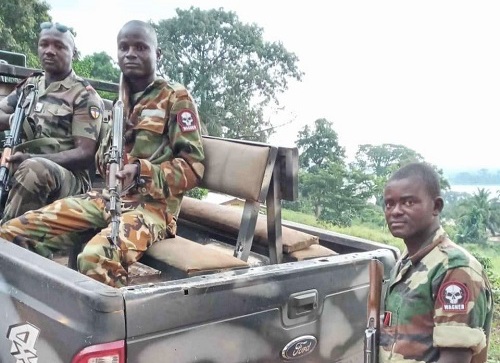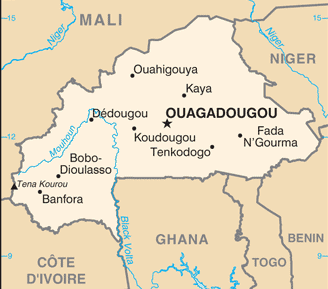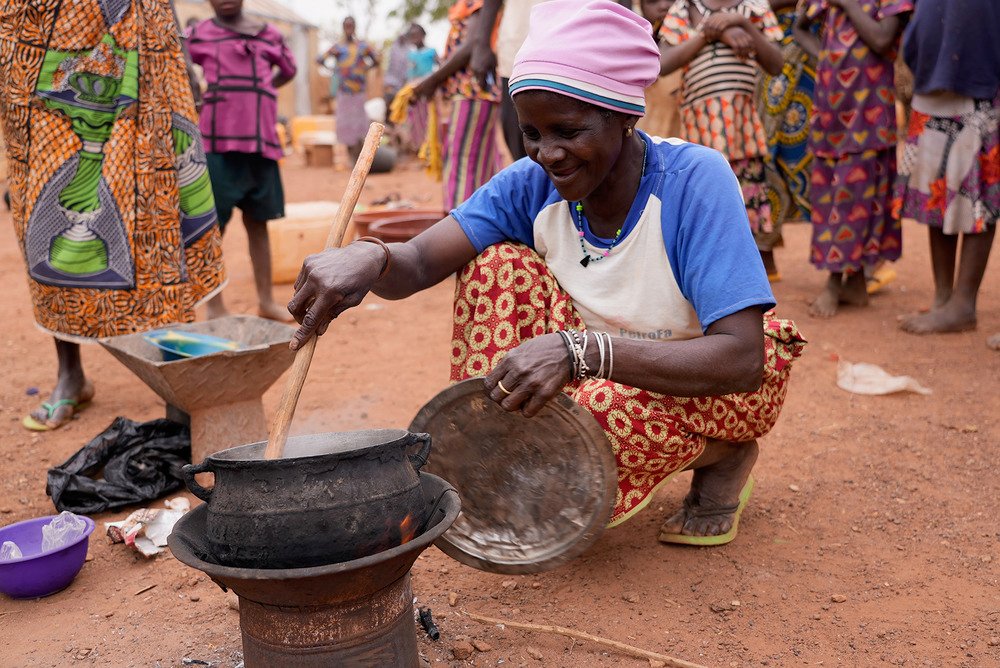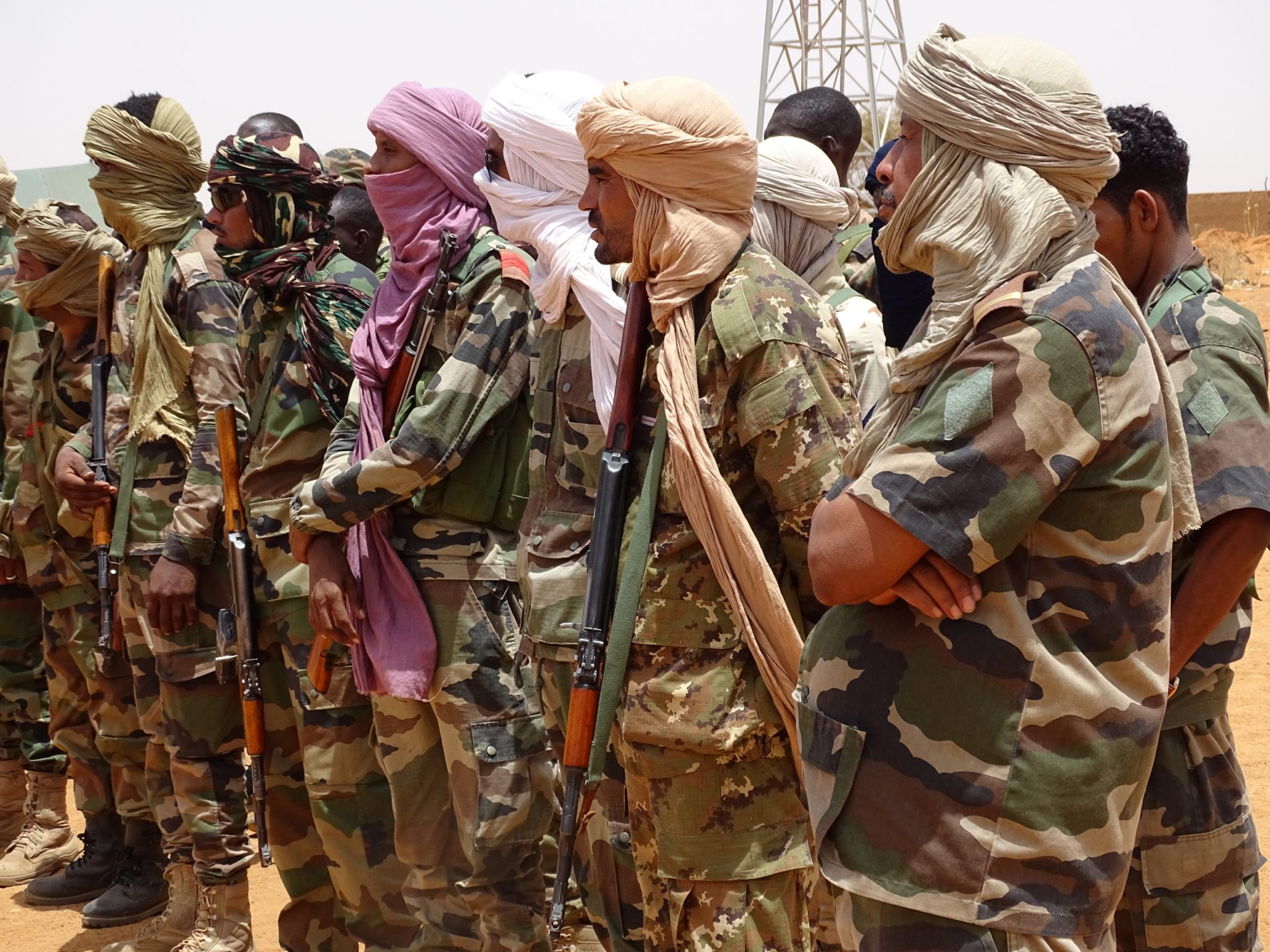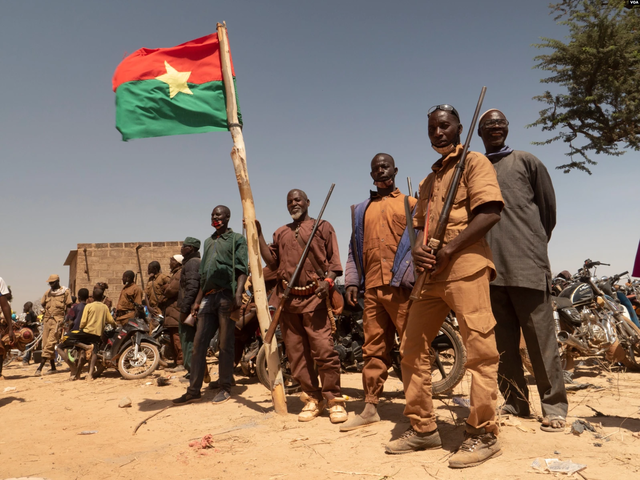
Ethnically targeted killings in Burkina Faso: report
A human rights group in Burkina Faso reported that 28 people were found shot dead in the town of Nouna, in apparently ethnically targeted killings at the hands of a volunteer militia group. The Collective Against Impunity & Stigmatization of Communities (CISC) said the killings were perpetrated by members of the Volunteers for the Defense of the Homeland (VDP). The VDP allegedly killed 21, including children, in a year-end attack in a part of Nouna inhabited by the minority Fula community. The report stated that the VDP appears to have targeted “resourceful” or “influential” people in the community. The report further found that similar extrajudicial executions were carried out by the VDP in the same community earlier in December. The VDP is a citizen militia formed to help the Burkina Faso military fight jihadist rebels. (Photo of VDP fighters: Henry Wilkins/VOA via Wikimedia Commons)



